Ellen G. White’s Lasting Legacy
Ellen G. White is a well-known name among Seventh-day Adventists, but she also made an impact in many other parts of history, aside from being a co-founder of the Adventist Church. That’s why Smithsonian Magazine recognized her as one of the 100 most influential Americans of all time.
So what was it about Ellen White’s life that brought about this kind of lasting influence and inspiration? Not only did she help guide the Adventist Church in areas of education and health, she also wrote more than 40 books (and about 5,000 journal articles) to guide people toward a closer walk with Jesus Christ.1
And even with her ministry taking place over a century ago, her Spirit-led counsel continues to bless and guide people even in the 21st century.
Let’s look at the different parts of her life that contributed to the legacy she left behind her. We’ll cover:
- Her personal and family life
- The field of education
- Adventist doctrine
- The field of health
- Her writings
And in everything she did, she always gave the glory to God.
Let’s start by looking at how her legacy lives on through her family.
Personal and family legacy
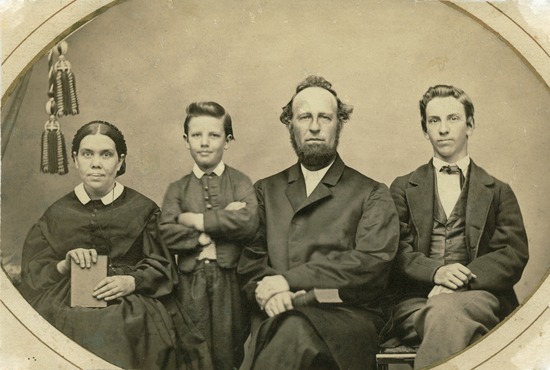
Ellen White had four sons, but only two of them survived to adulthood.
These two boys, Edson and Willie, would grow to follow in their mother’s footsteps in working for God’s ministry.
Her greatest desire for her children was that they would each accept God as their personal Savior.2
She took painstaking efforts to set a good example for them, reminding them to mold their characters to be like Jesus—compassionate, empathetic, purpose-driven, and most importantly, with their eyes on their Heavenly Father.
Though she was busy caring for their home, writing books, and traveling while serving in various ministry roles, she made sure her children knew they were valued and loved. She often wrote personal letters to each of them while she was away.
It was in these letters that we’re able to catch a glimpse of the kind of mother Ellen White was. She wrote them regularly whenever they were apart, telling them about her journey.3 And she was careful to show a personal interest in the lives of her children, asking about what they’d been involved in and what recent challenges they were up against.4
Like any good mother, she helped advise and lead them. And in her letters she would include a specific reminder to love and follow Jesus.5
From her writings and stories written about her, we can learn a lot about the very different personalities of her sons, Willie and Edson. Willie was generally more obedient and easygoing, while Edson proved to be more stubborn, inclined to do things his own way.6 And she knew God had unique plans for each of them.
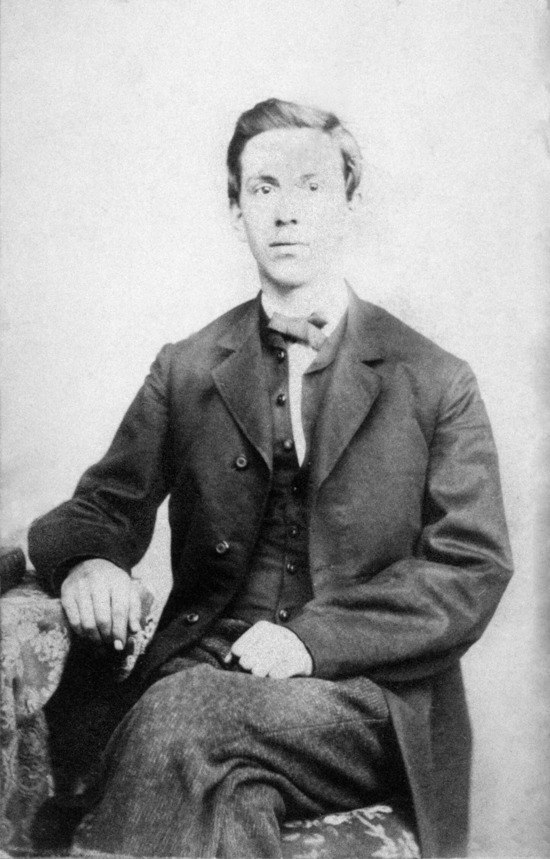
Often Edson and his father, James White, would argue about the poor decisions Edson would make—particularly how he handled money.7 But she often stood up for Edson, seeing his potential and knowing that God would never give up on him, and neither would she.8
But at one point in his life, Edson had gotten so discouraged that he decided to turn away from God altogether.9
Ellen White agonized over his decision. And while she respected his right to choose, she pleaded with him in her letters to turn back to God.10
It was at this time that God gave her a symbolic dream of Edson drowning in an undertow.11 This represented his dire spiritual situation, and how he needed a helping hand to help him keep his head above water during his tumultuous spiritual struggle.12
She shared this dream with Edson, not in an attempt to frighten him, but to show him the reality of what his decision to reject God would mean.
Contemplating his mother’s perseverance and dedication to his spiritual well-being, this experience eventually convicted Edson that he needed a change of direction in his life. He decided to once again invite God into his heart.13
His conversion was due in part to the tireless efforts of his mother. And together, they rejoiced over the newfound freedom he was able to find in his relationship with God. Edson could sense His holy guidance as he finally fulfilled his ambition to become a sailor.
By witnessing Ellen White’s dedication to God, and to the world and the children He loves, her sons were inspired to also use their talents for God.
With his steamboat, Edson created an educational ministry on the Mississippi River for African Americans.14 In the past he had also worked as a printer, songbook publisher, writer, and also helped with the General Sabbath School Association.15
Meanwhile, Willie became her assistant and traveling companion as she traveled abroad to help establish and encourage additional ministry efforts to help spread the Gospel.16 Throughout his lifetime, Willie was an editor and an administrator, along with other roles such as serving on the Battle Creek College Board and assisting with the Sabbath School Association.17 Some other noteworthy positions include his role as one of the directors for the Health Reform Institute and vice president of the Seventh-day Adventist Publishing Association.18 He even became the president of the Australian Union Conference.19
Ellen White was proud of both her sons’ ministerial careers. She prayed for them constantly and aspired to always be there for them in their struggles, encouraging them to keep doing God’s work.
Overall, she was happy to see the next generation taking over her work for the Lord. She knew it didn’t depend on her. She was just a willing vessel for the Holy Spirit to do His work.
Ellen White passed away in 1915. But she left her children with the memories of her unique ministry and the miraculous ways she was used by God. These were priceless experiences that complemented her genuine love for her sons, and her desire to help everyone learn about Jesus.
Her legacy in the field of education
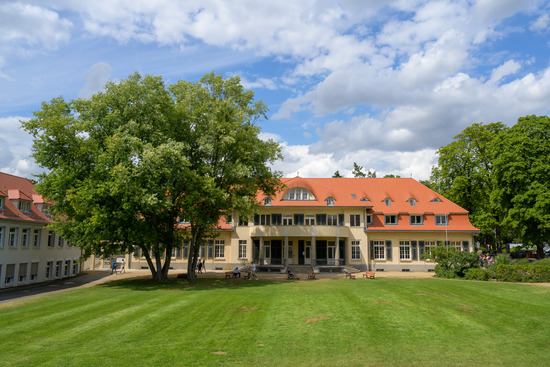
Because of that very desire to help people around the world learn about who Jesus Christ really is, Ellen White contributed to the field of education by encouraging Adventists to develop high-quality schools that included whole-person education and spiritual instruction—something that was quite rare in her day.
Through her diligent Bible study and guidance from the Holy Spirit, she helped establish the Seventh-day Adventist Educational system based on fundamental biblical principles that make a difference in each child’s ability to learn and grow.
Of the denomination’s early founders, Ellen White was one of the strongest supporters of Adventist schools. She saw the need for educational efforts that encouraged godly living and a closer walk with Christ, rather than basic book learning that only focused on the bare necessities.
She envisioned schools that would help students grow mentally, physically, and spiritually.
“True education means more than the perusal of a certain course of study. It means more than a preparation for the life that now is. It has to do with the whole being, and with the whole period of existence possible to man. It is the harmonious development of the physical, the mental, and the spiritual powers. It prepares the student for the joy of service in this world and for the higher joy of wider service in the world to come.”20
She helped Adventist schools pursue these ideals by sharing the instruction God gave her through the spiritual gift of prophecy.
She recorded these principles in her book, Education.
Some of these principles include:
- All subjects should be taught within a biblical framework.21
- Students learn practical skills and participate in manual labor.22
- Teachers should encourage students to think critically.23
- Students should spend more time out in nature.24
- Students should learn how to serve others, and regularly be given chances to do so.25
Ellen White, with the Holy Spirit’s guidance, also helped the Adventist Church determine the location of several Adventist schools, some of which include:
- Andrews University (1874)26
- Pacific Union College (1882)27
- Avondale College (1897)28
- Loma Linda University (1905)29
Most of the educational institutions she helped establish are still in full operation today. And several more schools have been established around the world.
Today there are over 9,000 Adventist schools worldwide.30 This includes 118 colleges, 6,621 primary schools, and 2,731 secondary schools.31
Overall, the Adventist school system is the largest Protestant school system in the entire world.32
It’s thanks to the Holy Spirit working through Ellen White, coupled with the diligent efforts of Adventist teachers and administrators, that this educational dream continues to flourish. Children can not only learn about more of the wonders of God’s creation, they can also learn how to get to know their Creator better and how to follow His leading throughout their whole lives.
Her legacy upholding the importance of studying and following Bible truth

Photo by Priscilla Du Preez 🇨🇦 on Unsplash
And her desire to educate didn’t stop with young children. She knew that everyone, from unbelievers to new believers to long-time followers of Christ, has more to learn about our Creator God and how He works with humanity.
When the Seventh-day Adventist Church was in its early years, Ellen White was deeply involved in the Bible study efforts that eventually formed the Fundamental Beliefs of the denomination. The small but fast-growing group of believers wanted to be very careful that their collective beliefs were firmly based in Scripture. They didn’t want to rely too heavily on tradition or popular philosophies of the time.
Through this study, early Adventists came to understand central concepts like the Sabbath, the Second Coming, and the Investigative Judgement. And because these concepts are complex and dependent on the understanding of other parts of the Bible, sometimes these study efforts would become temporarily stalled when they came across a passage that they weren’t unanimously agreed upon in how to interpret or apply it.33
There were also occasions throughout early Adventist history when church leaders would disagree on some of the core concepts behind Adventist doctrine. One of the most controversial theological discussions was on the topic of salvation by faith.
Ellen White had a lot to say at one of the General Conference sessions when this topic was greatly debated.34
Some delegates were so overzealous about obeying God’s law they de-emphasized the role of God’s grace in the process of salvation, even though it’s emphasized all throughout Scripture.35
Ellen White agreed that people should obey the law. God asks this of His followers in the Bible, and human beings need an understandable framework to live by. But she, along with fellow believers E.J. Waggoner, and A.T. Jones, insisted that we should not lessen the role of God’s grace and His unfathomable love demonstrated by giving His Son, Jesus Christ, to die on the Cross.
They continued to present Bible-based information about righteousness by faith, as well as the fact that our faith is demonstrated through our works by the guidance of the Holy Spirit (James 2:14-26).
Ellen White studied the Bible diligently and was always listening for the prompting of the Holy Spirit. She took a practical approach to studying this complex topic. And as a result, she asked believers to accept salvation by faith, and once they’d done that, to live a life of active faith and service to the Lord as a response to His love, not as a way to “earn” salvation.
In addition to confronting legalism, she also played a significant role in keeping the Adventist Church from being influenced by false or misleading teachings of trending philosophies or belief systems.
One of these philosophies was pantheism, the idea that God is an impersonal force rather than a relational Being, and that this “force” was in everything, particularly expressed through nature. While God certainly created everything and we can see His glory expressed through nature, the big problem with this philosophy was that those who followed it usually ended up essentially worshiping nature itself, as well as other people, as if everything was fully divine all the time. It deterred the focus from having a personal relationship with a loving God, who created everything in nature for us to respect, enjoy, and care for—not to worship.36
Ellen White demonstrated time and time again that the only way to establish sound doctrine is through thorough Bible study under the guidance of the Holy Spirit.
She also followed the Holy Spirit’s prompting to help people apply biblical principles to their daily lives.
The health message
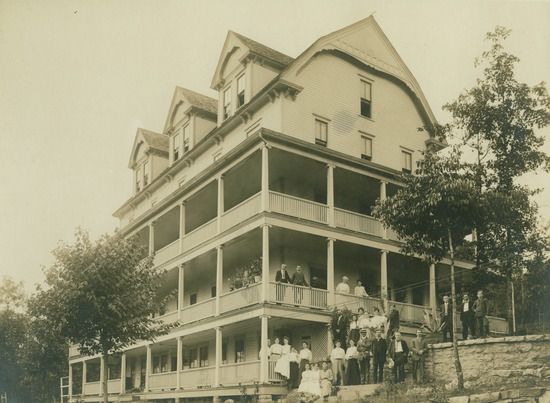
Ellen White left a considerable legacy in the fields of health and medicine. She did this by emphasizing the connection between physical health, and mental and spiritual health. She also taught people how we can best care for the bodies God gave us, and even helped establish health institutions that still stand today.
The Holy Spirit led Ellen White to encourage the establishment of sanitariums (countryside hospitals that treat specific or chronic illnesses). She was even given guidance on what they should offer and where they should be located. (Some of these include those in Glendale, Paradise Valley, and Loma Linda.37)
Sanitariums are different from your average hospital because they teach patients about preventive care and lean toward natural, lifestyle-based treatments.
In other words, they don’t just patch up their patients and discharge them. The idea is to both help them get better and show them what to do to ensure they stay healthy in the future.
Many of these sanitariums would later become full-fledged hospitals, although some sanitariums still exist today. We now have more than 230 Adventist hospitals and sanitariums around the world.38
These types of health clinics were especially helpful in Ellen White’s day. She lived during the US Industrial Revolution, which was also a time when general health suffered due to poor hygiene practices, exposure to toxins, dangerous working conditions, and little knowledge about proper nutrition. Moved by the Holy Spirit, she recognized the need to improve people’s physical health, so they could better enjoy the lives God gave them and be better able to serve others.39

Photo by Juliane Liebermann on Unsplash
She also wrote several books and many letters to help people live fuller, healthier lives, based on the information God inspired her with. She encouraged people to stop harming their bodies and minds with tobacco and alcohol, and to spend time outside in the sunshine and fresh air, enjoying what nature has to offer.
While this might not seem like revolutionary advice to us today, there was a time when tobacco was used as a go-to remedy for roughly 65 different health conditions.40 And people gave little thought to sanitation methods or the importance of including fruits and vegetables in their regular diets.
Her consistent advice about caring for our bodies in practical ways can be summarized by these key points, which is now known as the NEWSTART system:41
- N = Nutrition
- E = Exercise
- W = Water
- S = Sunlight
- T = Temperance
- A = Air
- R = Rest
- T = Trust in divine power
Sanitarium staff were encouraged to teach their patients about these health principles. And it was considered revolutionary at the time to embrace a plant-based diet, which she pointed out would lead to a healthier body and mind.
This concept, reflecting principles from Daniel 1, has since been proven in studies on Adventist health, to help people avoid getting diabetes, cancer, stroke, and various cardiovascular diseases.
So beyond teaching people about Jesus and creating a Christian school system, Ellen White’s legacy has actually led people to live longer, happier lives. That’s why so many of her books share the importance of whole-person health and how that can complement a life of service to God and others.
Overall, however, her writings cover a wide variety of both theological and practical topics. Even though she only had formal education that ended at age nine, she became the most translated female nonfiction author.42
Ellen G. White’s publishing legacy

Photo by Emmanuel Phaeton on Unsplash
Of all Ellen White’s achievements, the writings she published are the most lasting legacy of her ministry.
At a time when a fledgling Christian movement needed divine leadership and direction, her writings served to point back to biblical principles that were often forgotten, misunderstood, or misapplied in her day. This included essential subjects like health, Christian behavior, servant-leadership, doctrine, evangelism, and spiritual gifts.
According to Tim Poirier, Vice-Director of the Ellen G. White Estate, the most important thing about her writings is that:
“They provide spiritual and practical instruction for living in this world and preparing for the world to come.”
And because these things are written down, we don’t have to worry about forgetting what she taught us. These helpful words are recorded for the benefit and growth of the Adventist Church (particularly books like Testimonies for the Church) and for those wanting to foster a personal relationship with their Savior, Jesus Christ (with books such as Steps to Christ).
Though her writings were written for believers, and sometimes specifically Adventists, everyone can find practical value in her writings. Even though she authored these books over a century ago, the underlying principles are always applicable.
The Ellen G. White Estate owns all of Ellen White’s personal and published writing. They have the responsibility of faithfully preserving and sharing her writings for the world to read.
If you’re interested in reading her writings for yourself, you can access them at egwwritings.org.
(And for those who prefer to listen rather than read, they have digital audiobook versions of her writings.)
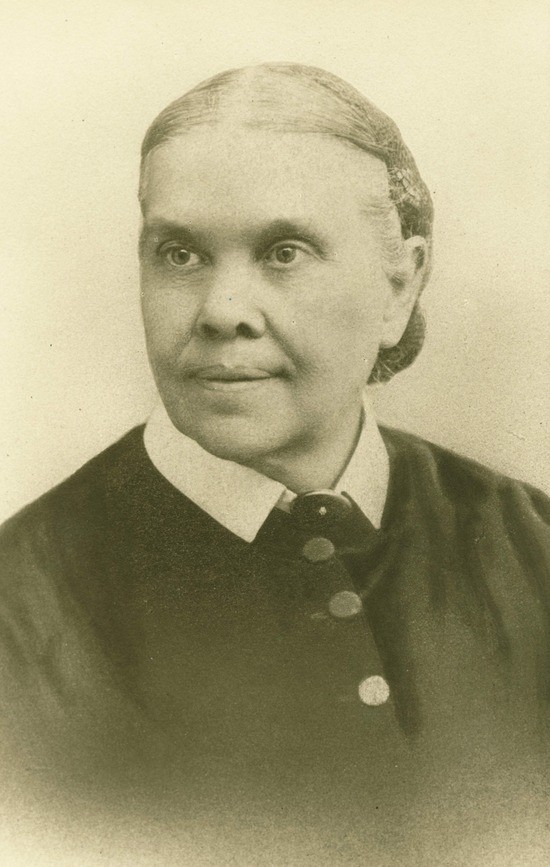
Overall, she wrote more than 100,000 pages within her lifetime.43
Some of her most popular works include The Desire of Ages and Steps to Christ, both of which are published by Pacific Press and can be found in every Adventist Book Center, among other places.44
Today, her legacy lives on primarily through her writings, which is how God gifted her to share His love and the Gospel message with the world. Through them we can see both the depth and breadth of her work.
The Impact of Ellen G. White
Ellen White was a devoted wife, mother, friend, messenger, speaker, teacher, health reformer, and humanitarian.
Wherever she went, people generally expressed a favorable impression of her. In fact, whenever God called her to visit a town to speak or meet with people, many of the locals found themselves wishing she would stay.45
And she wasn’t only recognized on a personal level. Big papers soon caught on to the impact she was making on the world.
In fact, shortly after she passed away, the New York Independent, a monthly journal, wrote:
“She was absolutely honest in her belief in her revelations. Her life was worthy of them. She showed no spiritual pride and she sought no filthy lucre. She lived the life and did the work of a worthy prophetess.”46
This is a big part of why she was recognized by Smithsonian Magazine. She helped countless people look to the Bible for answers, and she contributed to the improvement of the general health of Americans. By being a willing vessel for the Holy Spirit to work through her, she accomplished remarkable things.
Want to learn more about one of Ellen White’s most popular books?
- “How many books and articles did Ellen White write?” [↵]
- White, Ellen G., “I’d Like to Ask Sister White,” Ellen G. White Estate, p. 87. [↵]
- Ibid, p. 85-87. [↵]
- Ibid, p. 91. [↵]
- Ibid, p. 90. [↵]
- “Edson White: His Conversion and Work,” [↵]
- Ibid. [↵]
- Ibid. [↵]
- Ibid. [↵]
- Ibid. [↵]
- Ibid. [↵]
- Ibid. [↵]
- Ibid. [↵]
- “Edson White: His Conversion and Work,” [↵]
- Norman, Steve III, “James Edson White: A ‘No Limit’ Man,” [↵]
- Ibid. [↵]
- William Clarence ‘Willie’ White,” [↵]
- Ibid. [↵]
- Ibid. [↵]
- White, Ellen G., Education, p. 13. [↵]
- Ibid., p. 17. [↵]
- Ibid., p. 219. [↵]
- Ibid, p. 231. [↵]
- Ibid., p. 101. [↵]
- Ibid., p. 215. [↵]
- “Andrews Facts,” [↵]
- “About PUC,” [↵]
- “About Us,” [↵]
- “About the University,” [↵]
- “Seventh-day Adventist Education Statistics,” [↵]
- Ibid. [↵]
- “Now more than ever! Adventist Education,” [↵]
- White, Ellen Gould, Selected Messages Book 1, pp. 206-207. [↵]
- Douglass, E. Herbert, Messenger of the Lord, p. 195. [↵]
- Ibid. [↵]
- Ibid, pp. 200-201; White, Ellen G., Testimonies for the Church vol. 8. [↵]
- Douglass, p. 163. [↵]
- “Quick Statistics on the Seventh-day Adventist Church,” [↵]
- Ellen G. White, Counsels on Health, p. 6. [↵]
- anchez-Ramos, R. Juan, “The rise and fall of tobacco as a botanical medicine, ”[↵]
- “The NEWSTART Program,” [↵]
- White, Arthur L., Ellen G. White: A Brief Biography. [↵]
- “How many books and articles did Ellen White write?” [↵]
- “What is Ellen White’s Most Popular Book?” [↵]
- Skrzypaszek, John, “Ellen G. White’s Ministry in the South Pacific,” [↵]
- The Test Results Pt.4,” [↵]
Questions about Adventists? Ask here!
Find answers to your questions about Seventh-day Adventists
More Answers
Why Many Seventh-day Adventists Choose a Vegetarian Diet
Why Many Seventh-day Adventists Choose a Vegetarian Diet?You may have an Adventist friend who is vegetarian, or maybe you’re attending a Seventh-day Adventist Church for the first time and notice the potluck doesn’t have any meat. This isn’t unusual in Adventism. In...
The Health Benefits of Fresh Air You Should Know About
The Health Benefits of Fresh Air You Should Know About“When you can’t breathe, nothing else matters,” the American Lung Association tells us. And while that’s true, the kind of air you’re breathing will determine the health benefits you experience. Breathing fresh...
What Do Seventh-day Adventists Choose to Eat?
What Do Seventh-day Adventists Choose to Eat?Food blogs overwhelm the internet; food fads are all the rage; and copycat and healthy versions of food are the subject of many a get-together. Eating—and eating the best way—is a big deal. And everybody has a different...
10 Incredible Ways Sunlight Can Improve Your Health
10 Incredible Ways Sunlight Can Improve Your HealthAre you concerned about sunlight’s negative effects? You might be the one who lathers on the sunscreen and covers up when you go outside. Or maybe you avoid being outside as much as possible. You might be surprised,...
Why Is Water So Important?
Why Is Water So Important?We all know that water is a substance we can’t live without. It quenches our thirst and keeps us hydrated on the inside. And it’s necessary for hygiene and cleansing on the outside too. But did you know that the cleansing properties of water...
Ellen White’s Writings and the Adventist Health Message
Seventh-day Adventists are known for their emphasis on healthy living. And Ellen G. White was a significant influence in the development of this priority and practice among Adventists.
Health Clinics
Ellen White and Adventist Healthcare—Ahead of Their Time Medical care in the mid-1800s was primitive, to say the least. Basic concepts we take for granted—such as proper handwashing or recognizing the dangers of bloodletting—were nonexistent. And doctors often had...
What Did Ellen White Teach about Vegetarianism?
What Did Ellen White Teach about Vegetarianism?One thing you might have heard about Seventh-day Adventists is their emphasis on a vegetarian lifestyle. If you’re wondering why that is, it goes back to our church’s humble beginnings: As Adventists studied the Bible,...
How Ellen White’s Teachings Can Improve Your Health
How Ellen White’s Teachings Can Improve Your Health Healthcare in the nineteenth century was said to leave “more disease than it took away” with its use of bloodletting and “medicines” like mercury and arsenic.1 As people questioned these methods, new approaches...
Change Your Perspective on Life with These 5 Mindsets
5 Biblical Mindsets to Change Your Life for the Better Sometimes, life is just plain hard. There’s no way around it. So would thinking about things differently really change anything? Our perspective on life, and everything it throws at us, affects more than we’re...
Bible Promises for When You’re Worried or Fearful
Bible Promises for When You’re Worried or Fearful The Bible is full of beautiful promises that can comfort us in a variety of situations. They can give us hope when we are hopeless, make us feel grateful for God’s love, and comfort us when we’re grieving or suffering....
12 Practical Ways to Overcome Worry
12 Practical Ways to Overcome Worry DISCLAIMER: This content is for informational purposes only. It does not constitute any professional medical advice and is not intended as a substitute for professional mental health therapy. It’s easy to get stuck in a cycle of...
How the Bible Talks About Worry, Fear, and Anxiety
How the Bible Talks About Worry, Fear, and Anxiety Worry and fear are the ingredients of anxiety. It’s easy to see how the world isn’t perfect—and the anticipation of a bad event or experience (that may or may not even happen) can end up draining the peace and...
How to Calm Anxious Thoughts, Using the Bible
How to Calm Anxious Thoughts, Using the Bible You were expecting a phone call from your daughter half an hour ago, and she still hasn’t called. She’s also not answering your calls. You feel your heart thumping as your thoughts race: What if she’s been in a car...
What You Should Know About the Adventist Health Studies
What You Should Know About the Adventist Health StudiesYou may have heard that Seventh-day Adventists care about health. But what you may not know is that Adventists have been the subjects of long-term research into lifestyle and health. Since 1958, researchers from...
Benefits of Sunlight
Yes, There Are Health Benefits of SunlightDespite the bad reputation it’s gotten, sunlight is generally associated with positivity, as shown by songs like “You Are My Sunshine,” or phrases that refer to delightful people as having a “sunny disposition.” There’s a...
Why Your Body Needs Rest for Optimal Health
Why Your Body Needs Rest for Optimal HealthStruggling to think straight? Wondering why you can’t remember that important tidbit you heard earlier today? Feeling like your emotions are about to explode? These are just some of the symptoms that can reveal your need for...
The Seventh-day Adventist Diet: One of Our Key Longevity Secrets
The Seventh-day Adventist Diet: One of Our Key Longevity SecretsOats, avocados, lentils, tofu—probably not what you first think of in a standard American diet. But if you show up at the home of an Adventist, chances are you may be served one of these staples. Out of a...
Why You Need Fresh Air
Why You Need Fresh Air“When you can’t breathe, nothing else matters,” the American Lung Association tells us. We couldn’t agree more! Breathing in clean air is an essential part of caring for our bodies, which God has given us. Together with other health principles,...
Sabbath Meal
Everything You Need to Know About Sabbath MealsFor Seventh-day Adventists, sharing a Sabbath meal with friends and family is one of the most special and memorable parts of the Sabbath. That’s why we want to share with you all about Sabbath meals and why they’re such a...
Adventists and Healthy Living
Adventists and Healthy LivingWhat’s the Adventist “Health Message” All About? One thing Seventh-day Adventists are known for is their emphasis on living healthy lives. Since our bodies are living temples of the Holy Spirit (1 Corinthians 6:19, 20), we strive to stay...
Water’s Importance—Physical Benefits and Spiritual Applications
Water’s Importance—Physical Benefits and Spiritual Applications We all know that water is a substance we can’t live without. Not only does it quench our thirst and keep us hydrated from the inside, but it’s necessary for hygiene and cleansing on the outside as well....
How Important is a “Day of Rest?”
How Important is a “Day of Rest?” Why God Created a Day for Downtime by Martin Casper Do you ever experience the feeling of complete overload? Do you feel like the only way you can get ahead is by slamming it 24/7? I hear these types of comments more and more...
7 Reasons Why a Day of Rest is Important
7 Reasons Why a Day of Rest is ImportantWe live in a fast-paced world. It seems as if success is measured in how much you can do in a short amount of time. (Extra points for the service or product that is available 24/7). The idea that we will be more successful if we...
How do Adventists choose what to eat?
How do Adventists choose what to eat?Every day, parents go through the ritual of getting their kids to eat what is healthy and good while trying to steer them away from what can hinder the growth of their developing bodies. Nutritionists work with their clients to...
How Can I Have a Better Marriage?
Is it possible to have a happy marriage?
Why are many Adventists Vegetarian?
Why are many Adventists Vegetarian?The diet intended for man is outlined in Genesis 1:29, “And God said, ‘See, I have given you every herb that yields seed which is on the face of all the earth, and every tree whose fruit yields seed; to you it shall be for food.’”...
Didn’t find your answer? Ask us!
We understand your concern of having questions but not knowing who to ask—we’ve felt it ourselves. When you’re ready to learn more about Adventists, send us a question! We know a thing or two about Adventists.




















